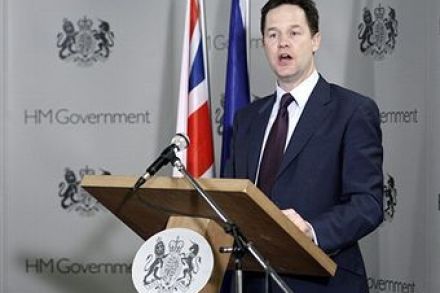Another hurdle for Lansley’s health reforms
And so it came to pass. After sniping at Andrew Lansley’s health reforms from the day they were announced — at one point describing them as a “slash and burn approach” — the British Medical Association has today voted to call on the Health Secretary to withdraw his Bill entirely. The speech that the BMA Council Chairman, Hamish Meldrum delivered this morning captures the tenor of their opposition: “…what we have is an often contradictory set of proposals, driven by ideology rather than evidence, enshrined in ill-thought-through legislation and implemented in a rush during a major economic downturn.” So what to make of it all? Normally, another “union opposes coalition”


















